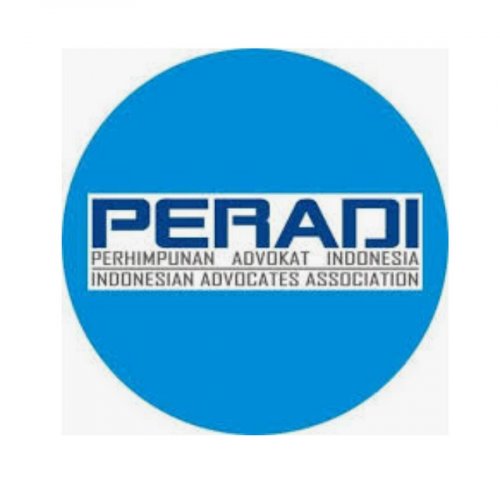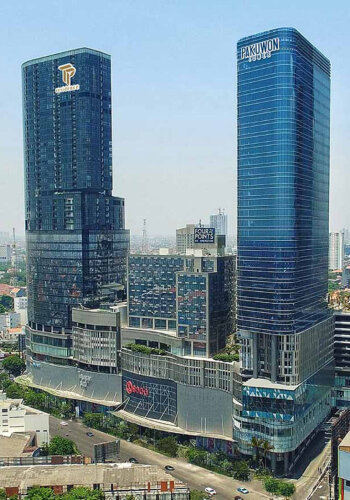Best Bankruptcy Lawyers in Indonesia
Share your needs with us, get contacted by law firms.
Free. Takes 2 min.
Or refine your search by selecting a city:
List of the best lawyers in Indonesia
About Bankruptcy Law in Indonesia
Bankruptcy law in Indonesia is governed under Law No. 37 of 2004 on Bankruptcy and Suspension of Debt Payment Obligations (known as the Bankruptcy Law). This legal framework is designed to provide a clear and orderly process for dealing with the insolvency of individuals and businesses. The law outlines procedures for filing for bankruptcy, the roles of various parties such as creditors, debtors, and administrators, and the distribution of assets. Indonesia's bankruptcy law aims to balance the interests of debtors and creditors and ensure that the liquidation and distribution of assets are conducted in a transparent and fair manner.
Why You May Need a Lawyer
There are several common situations where individuals or businesses may require legal assistance regarding bankruptcy:
- Complicated financial situations: Understanding intricate financial documents and arrangements can be overwhelming; a lawyer can offer clarity and representation.
- Filing for bankruptcy: The process involves submitting numerous documents and adhering to strict timelines, which a lawyer can manage.
- Debt restructuring: Negotiating with creditors for more favorable terms requires legal expertise.
- Litigation: If disputes arise during the bankruptcy process, legal representation is crucial for navigating court proceedings.
- Compliance with local regulations: Ensuring that all actions comply with Indonesian bankruptcy laws necessitates detailed legal knowledge.
Local Laws Overview
Key aspects of Indonesia’s bankruptcy laws include:
- Criteria for bankruptcy: Under Indonesian law, a debtor can be declared bankrupt if they have at least two creditors and have failed to pay at least one debt that is due and payable.
- Bankruptcy petition: Both creditors and debtors can file a petition for bankruptcy. The Commercial Court is the authorized body to make decisions on such petitions.
- Role of administrators: Following a bankruptcy declaration, an appointed administrator manages the debtor's assets and oversees the debt settlement process.
- Suspension of Debt Payments (PKPU): Debtors may apply for PKPU to temporarily suspend debt payments while preparing a restructuring plan.
- Asset liquidation: If reorganization is not possible, the debtor’s assets are liquidated to repay creditors.
Frequently Asked Questions
What is the primary legal framework governing bankruptcy in Indonesia?
The primary legal framework is Law No. 37 of 2004 on Bankruptcy and Suspension of Debt Payment Obligations.
Who can file a bankruptcy petition in Indonesia?
Both creditors and debtors are eligible to file a bankruptcy petition with the Commercial Court.
What are the criteria to file for bankruptcy in Indonesia?
A debtor must have at least two creditors and must have failed to pay at least one debt that is due and payable.
What is the difference between bankruptcy and PKPU in Indonesia?
Bankruptcy involves the liquidation of a debtor's assets to pay creditors, while PKPU is a temporary suspension of debt payments to allow debt restructuring.
How does a bankruptcy declaration affect a debtor's assets?
Once declared bankrupt, a debtor’s assets are managed and potentially liquidated by an appointed administrator to settle debts.
Can individuals file for bankruptcy in Indonesia?
Yes, individuals, including businessmen, can file for bankruptcy if they meet the legal criteria.
What is an administrator's role in bankruptcy proceedings?
An administrator manages the debtor's estate, oversees asset distribution, and represents the debtor during the proceedings.
How long does the bankruptcy process typically take in Indonesia?
The timeframe varies significantly depending on the complexity of the case and court schedules.
Can a bankruptcy decision be appealed in Indonesia?
Yes, parties may appeal a decision by the Commercial Court to the Supreme Court.
What happens to ongoing contracts when a party is declared bankrupt?
Ongoing contracts may be terminated or renegotiated depending on the terms agreed with creditors and overseen by the administrator.
Additional Resources
For more information, the following resources may be helpful:
- Indonesia's Ministry of Law and Human Rights: Offers legal resources and updates on law reforms.
- Commercial Courts in Indonesia: Handle bankruptcy cases and provide procedural guidance.
- Indonesian Advocates Association (PERADI): Can refer you to qualified lawyers specializing in bankruptcy law.
- Commercial Legal Firms: Many offer specialized services in bankruptcy and insolvency matters.
Next Steps
If you believe you need legal assistance regarding bankruptcy, consider the following steps:
- Consult with a bankruptcy lawyer to discuss your specific circumstances and receive tailored advice.
- Prepare all relevant financial documents, contracts, and correspondence that may be needed for legal consultations.
- Contact the Indonesian Advocates Association (PERADI) for referrals to reputable lawyers.
- If you are a business, ensure you have up-to-date records of all financial transactions and obligations.
- Consider attending legal seminars or workshops to enhance your understanding of bankruptcy laws.
Lawzana helps you find the best lawyers and law firms in Indonesia through a curated and pre-screened list of qualified legal professionals. Our platform offers rankings and detailed profiles of attorneys and law firms, allowing you to compare based on practice areas, including Bankruptcy, experience, and client feedback.
Each profile includes a description of the firm's areas of practice, client reviews, team members and partners, year of establishment, spoken languages, office locations, contact information, social media presence, and any published articles or resources. Most firms on our platform speak English and are experienced in both local and international legal matters.
Get a quote from top-rated law firms in Indonesia — quickly, securely, and without unnecessary hassle.
Disclaimer:
The information provided on this page is for general informational purposes only and does not constitute legal advice. While we strive to ensure the accuracy and relevance of the content, legal information may change over time, and interpretations of the law can vary. You should always consult with a qualified legal professional for advice specific to your situation.
We disclaim all liability for actions taken or not taken based on the content of this page. If you believe any information is incorrect or outdated, please contact us, and we will review and update it where appropriate.
Browse bankruptcy law firms by city in Indonesia
Refine your search by selecting a city.

















